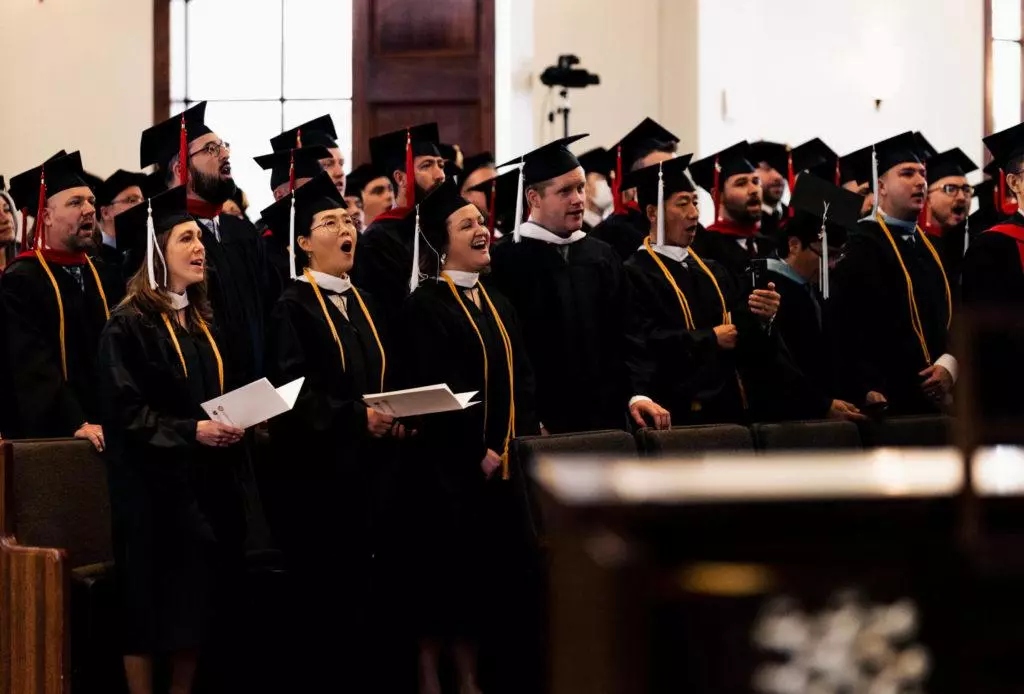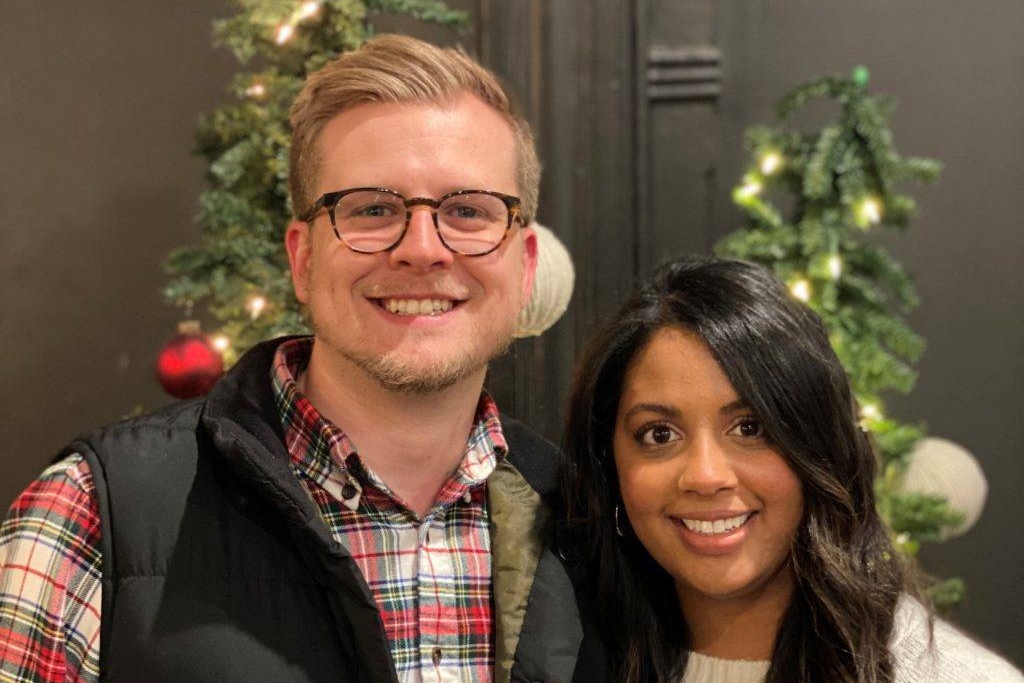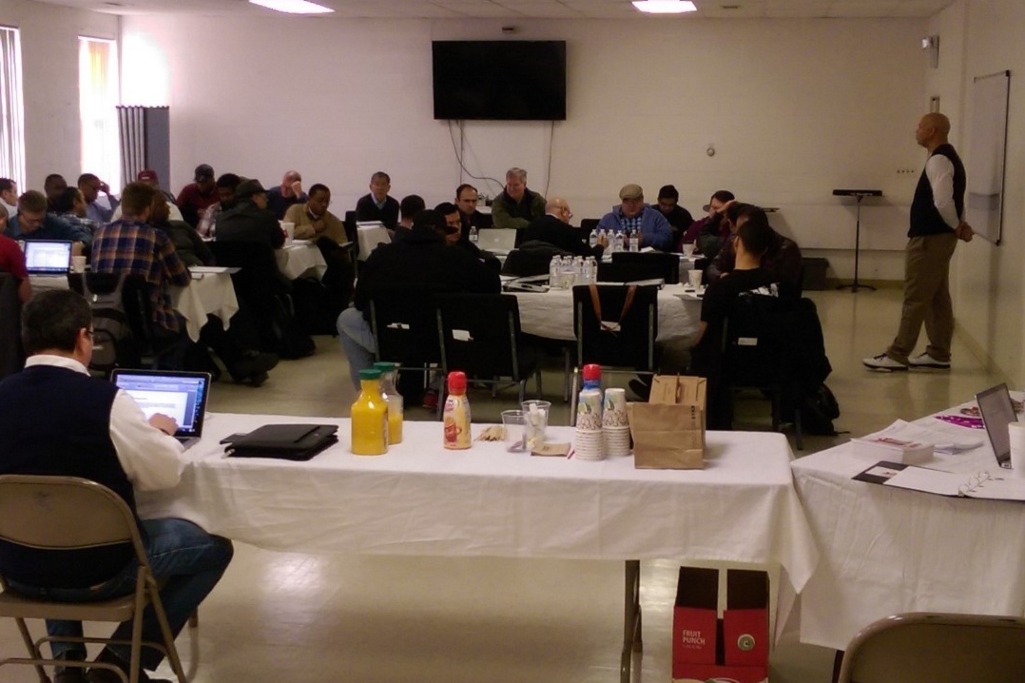
Noah and Tarin Madden were newlyweds when they sought a seminary that would prepare them to spread the gospel in the church and in the community.
“We wanted to serve and to grow and to learn in a place where there was a need for the gospel, where we could learn things about ministry and be challenged and encouraged,” Noah told Baptist Press (BP), “and at the same time, be able to put those things into practice. And not only learn in the classroom, but learn in the church and in the city.”
They found their place at New Orleans Baptist Theological Seminary (NOBTS).
As 2019 master level graduates, Noah is equipped for his current mission as a Weymouth, Mass., North American Mission Board (NAMB) Send Network church planter, and Tarin is able to practice from a Christian worldview as a state-licensed counselor.
Noah wouldn’t have been able to afford seminary training without the church-generated financial support of the Southern Baptist Convention (SBC) Cooperative Program (CP), he said. Coupled with academic scholarships, the CP allowed Noah to graduate debt free.
“Honestly, I haven’t lived much of my life not impacted by the Cooperative Program,” Noah said. His parents served 15 years as NAMB church planters in Canada. Noah planted the third campus of the Life Community Church network in New England, launching the Weymouth church this past Easter and joining a network of two other Life Community churches led by NAMB church planters in Quincy and Braintree, Mass.
Noah views his seminary training as a ready toolbelt of abilities, and appreciates the network of more than 50,000 Southern Baptist churches and missions that work together to spread the gospel globally.
“I would say it allowed me to lead from a place of some wisdom and experience that I didn’t have from my own personal ministry practice,” he said. “It gave me tools that would have taken me years to cultivate and develop on my own.
“But even beyond the theological side of things, it really helped me to take ownership of my own calling and to recognize that it’s more than information, and it’s more than a title or a role. My time in seminary helped me realize what it looks like to be a follower of Jesus who leads and who loves the church and who’s on mission.”

Noah and Tarin Madden
David S. Dockery, interim president of Southwestern Baptist Theological Seminary (SWBTS) in Fort Worth, Texas, describes theological education as “a key rationale for the establishment of the CP.”
The CP greatly funds the work of the six Southern Baptist seminaries in the U.S. that together train thousands of pastors, missionaries and other ministers annually.
“SBC leaders who birthed the Cooperative Program – including L.R. Scarborough as Southwestern Seminary president [1915-42] – believed financial support to train future pastors, missionaries and other church staff was central to galvanizing overall Great Commission support among Southern Baptists,” Dockery told BP. “Because of the Cooperative Program, SBC theological education is considerably more accessible for future gospel ministers than any other accredited theological education options.”
Chris Shaffer, NOBTS associate vice president for institutional strategy, terms the CP foundational to the New Orleans institution’s success.
“The financial support makes our work possible,” Shaffer said. “The CP also represents the cooperative spirit and commitment of the churches of the SBC. This CP is a clear expression of the partnership between the seminaries and churches of the SBC. The doctrinal commitment of the seminaries reflects the commitment of the churches of the SBC.”
In addition to NOBTS and SWBTS are The Southern Baptist Theological Seminary (SBTS) in Louisville, Ky., Southeastern Baptist Theological Seminary (SEBTS) in Wake Forest, N.C., Midwestern Baptist Theological Seminary (MBTS) in Kansas City, Mo., and Gateway Seminary in Ontario, Calif. The seminaries offer onsite and online training at a network of campuses and extension sites beyond their main campuses.
United in purpose, the seminaries offer a diversity of advantages, leaders say.
“The uniqueness of New Orleans will encourage and challenge anyone called to serve in ministry,” Shaffer said of NOBTS. “What better place to learn how to serve the nations than in a place that is rich with a multitude of cultures and peoples. What an incredible opportunity we have for students to learn how to church plant or serve in mercy ministries in partnership with NAMB and Send Relief.”
SBTS President Albert Mohler describes continuity as one of the Louisville’s institutions most important responsibilities.
“The first asset I would point to is that continuous commitment to the training of preachers and pastors above all, and the training of missionaries to serve all over the world,” Mohler said. “In terms of innovation, the most important change in my lifetime is the fact that we’re able to do that all over the world, 24 hours a day, without interruption.”
Training seminarians to be effective evangelists is paramount at SWBTS, Dockery said.
“Educating pastors and missionaries to be effective evangelists has been a key distinctive of Southwestern Seminary starting with its founding by B.H. Carroll when he began the first-ever evangelism academic program with the first academic chair – the ‘Chair of Fire,’” Dockery said. “Among the ways this has been manifested is the fact that Southwestern Seminary has educated more IMB (International Mission Board) missionaries than any other SBC seminary. And today, future missionaries study with a faculty in the Roy J. Fish School of Evangelism and Missions with 163 years of combined missionary service.”
Charles Smith, MBTS senior vice president for institutional relations, describes all Southern Baptist seminaries as committed to God’s Word, but is thankful for a particularly special current atmosphere at the Kansas City school.
“Southern Baptist seminaries are among some of the largest and most effective seminaries in the world due to their confessional commitments, missional cooperation, and broader denominational framework,” Smith said. “By God’s grace, all are committed to God’s Word and faithfully preparing the next generation of ministry leaders.
“With that said, I believe we at Midwestern are enjoying a uniquely sweet season. Our vision is clear, our faculty is strong and our campus community is vibrant. We pray that continues to attract students to Kansas City.”
Southern Baptist seminaries are not only focused on theological education, Mohler said, but also on the Southern Baptist denomination.
“First, Southern Baptists wanted the vast majority of our pastors to be trained within Southern Baptist institutions, to be taught the doctrine and the faith held by Southern Baptists and to become fully acquainted with the work of the SBC and its mission,” Mohler said. “Thus, our seminaries are not only about theological education, but also about the denomination.
“…There is no other denomination where every single seminary student is the recipient of investment from every single Southern Baptist Church that supports the Cooperative Program. Every member in one of those churches is a part of the candle of faithfulness in the lives of these students. I find that to be an absolutely amazing thing.”
(EDITOR’S NOTE – Diana Chandler is Baptist Press’ senior writer.)


